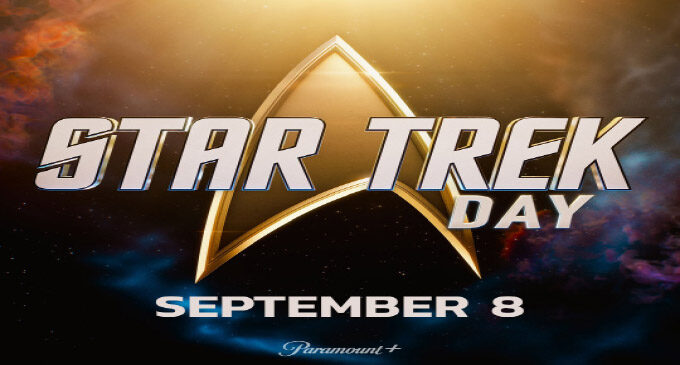Celebrating Star Trek Day

By David Winship
Today, Sept. 8, is Star Trek Day, marking the 56th anniversary of the debut date of the iconic series in 1966. Star Trek originally ran on NBC from 1966 to 1969 and provided a springboard for many other series, movies, and a legion of fans. Though creator Gene Rodenberry pitched the idea as a “Wagon train to the stars,” it was more than a science fiction story. It was a story of relationships, human strength and frailty, justice and prejudice, perceptions and revelations.
“Star Trek was the first multi-ethnic crew or cast on a television series that was positive and looked to the future,” said Nichelle Nichols in a 40th anniversary interview on YouTube. Nichols portrayed Lt. Nyota Uhura, communications officer on the bridge of the Starship Enterprise, the first time a woman of color held such a position of prominence and influence. Her influence went beyond the bridge of the Enterprise into her legion of fans who saw her as a hero and role model. These include LeVar Burton, who credited Rodenberry’s vision with showing that when the future comes, people of color will be there. Mae Jemison, physician, engineer and NASA astronaut, has credited the image of Nichols as Uhura as a motivation for her journey into space.
Nichols passed away in July 2022. Her career went beyond Star Trek, including roles on stage and screen, as well as an author. Her multidisciplinary life included early-stage performances with band leaders Duke Ellington and Lionel Hampton and in the film version of “Porgy and Bess” before she was cast in Star Trek. She considered leaving Star Trek after the first season to return to the theatrical stage, but a conversation with Dr. Martin Luther King, Jr., an avowed “Trekkie,” changed her mind. King implored her to continue her role because “we will be seen as we should be seen every day, as intelligent, quality, beautiful, people who can sing, dance, and can go to space, who are professors, lawyers.”
After her Star Trek role, she embraced her opportunities of working in promoting women and ethnic diversity in NASA programs through her enterprise Women in Motion, leading to notable astronauts Mae Jemison, Guion Bluford, Sally Ride, Judith Resnick, Ronald McNair and many others. Along with other members of the Star Trek crew, she was present at the 1976 dedication of the first Space Shuttle, The Enterprise.
Star Trek not only provided a prescient view of social change, but also anticipated technological innovations. These include wireless communications devices, desk-top computers, big screen and remote video display, tablets and flip phones with voice-activation artificial intelligence. Such technological developments as Google glasses, 3-D printing, touch screen monitors, video chatting and virtual reality were all imagined on Star Trek and came to be evident in twenty-first century societies.
When the U.S.S. Enterprise entered the universe of the twenty-second century, Earth of the twentieth century was in the distant past. History provided guidance and inspiration for the stories Star Trek devised. Generations have enjoyed and dreamed along with the Enterprise, as we do today.
Live long and prosper.
David Winship is a retired public-school educator from Bristol, Tennessee. His interests in research and writing cover history, science, and social science topics. He is an occasional contributor to The Winston-Salem Chronicle and a member of Winston-Salem Writers.










